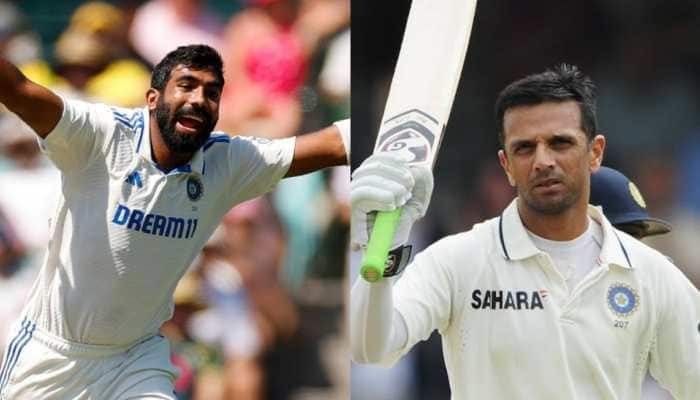ICC's Big American Dream: How T20 World Cup 2024's USA Leg Failed
The T20 World Cup 2024 in the United States serves as a pivotal case study for the ICC's global strategy.
Trending Photos
)
The ICC's decision to host the T20 World Cup 2024 in the United States marked a bold step towards expanding cricket's global footprint. This move was not merely about finding new audiences but also about leveraging America's economic prowess and cultural influence to propel cricket into uncharted territory. However, as the tournament unfolded, it became evident that realizing this dream would prove more challenging than anticipated.
The Promise and the Reality: Setting the Stage
From the outset, the Nassau County Cricket Ground in Long Island stood as a symbol of ambition. Constructed in record time, this venue aimed to capture the attention of New York City's diverse populace and global visitors alike. The backdrop of skyscrapers and bustling streets promised a blend of tradition and modernity, ideal for showcasing cricket's dynamism on a world stage.
Also Read: Babar Azam's Networth 2024: How Rich Is Pakistan's Captain? In Pics
Standout Performances and Unexpected Twists
Amid logistical hurdles and criticism over pitch conditions, standout performances illuminated the tournament. The United States team emerged as unexpected contenders, stunning Pakistan with their spirited play and pushing traditional powerhouses like India to their limits. Players like Saurabh Netravalkar and Monank Patel became household names overnight, embodying the tournament's unpredictable spirit.
Pitch Controversies: Uneven Playing Fields
A contentious issue throughout the tournament was the quality of the drop-in pitches. Transported from Adelaide to Florida mere weeks before the event, these surfaces struggled to meet international standards. Reports of uneven bounce and low scores raised questions about the ICC's preparedness and its impact on the game's entertainment value. Despite efforts to rectify these issues mid-tournament, the damage to the event's credibility had been done.
Logistical Challenges: From Ticket Prices to Weather Woes
Beyond the pitch debacle, logistical mishaps further tarnished the ICC's aspirations. Ticket prices, particularly for marquee matches like India vs. Pakistan, soared to unprecedented heights, pricing out potential local fans and contributing to sparse crowds. Moreover, the lack of adequate ground cover in Florida led to multiple matches being washed out, highlighting inadequate contingency planning for weather disruptions.
Cultural Reception: Cricket in the American Context
Crucially, the tournament's reception among native Americans was tepid at best. Accustomed to the fast-paced action of sports like baseball and basketball, cricket's slower tempo and strategic nuances failed to resonate broadly. Despite sporadic efforts at local marketing and community engagement, cricket remained a niche sport primarily embraced by expatriate communities rather than penetrating mainstream American culture.
Strategic Implications and Lessons Learned
The T20 World Cup 2024 in the United States serves as a pivotal case study for the ICC's global strategy. While the tournament showcased cricket's potential allure in a lucrative market, it also underscored the imperative of meticulous planning and cultural adaptation. Moving forward, the ICC must prioritize inclusive marketing strategies that resonate with diverse audiences and foster grassroots engagement to cultivate lasting interest in the sport.
Future Prospects: Navigating Challenges for Sustainable Growth
Looking ahead, the ICC faces the dual challenge of revitalizing its American dream while addressing the fallout from the 2024 tournament. Strategic investments in infrastructure, including pitch maintenance and venue selection, will be crucial to restoring confidence in future events. Moreover, fostering partnerships with local communities and educational institutions can nurture a new generation of cricket enthusiasts, laying a foundation for sustained growth in non-traditional markets.
Stay informed on all the latest news, real-time breaking news updates, and follow all the important headlines in india news and world News on Zee News.
Live Tv







)
)
)
)
)
)
)
)
)
)
